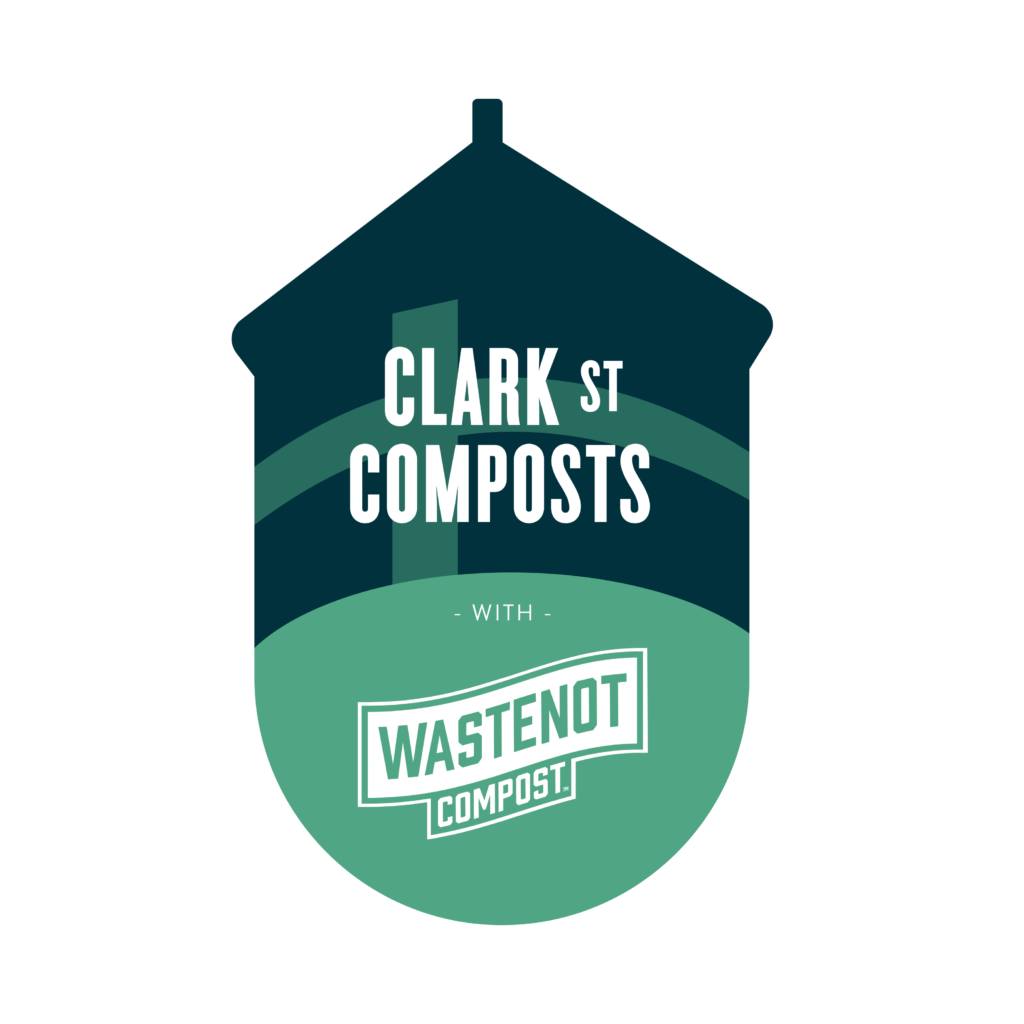The Andersonville Chamber of Commerce (ACC) is pleased to partner with WasteNot Compost to launch Clark Street Composts, a private-public pilot program aimed at providing a composting model for every neighborhood across Chicago. The initiative launched in the Fall of 2021 with more than 20 local restaurants, bars and other businesses committed to diverting their compostable waste away from landfills to be returned to the community as nutrient-rich soil.
Current Clark Street Compost Participants Include:
A Pretty Flower
Andersonville Chamber of Commerce
Dollop Diner
Jeni's Splendid Ice Cream
Pizza Lobo
Uvae Bar + Kitchen
Open Space Early Learning Center
Sweetgreens Andersonville
The Coffee Studio
Andersonville, a progressive environmental and social equity neighborhood on Chicago’s north side, has a strong record in sustainability practices, including the Andersonville Recycles program which launched in 2009. WasteNot has been rated the best overall composting company in the U.S. by the environmental website treehugger.com. Chicago’s 2.7 million residents rank last in the country in terms of recycling habits, with food waste estimated to make up over 50% of landfill contents, and 17% of greenhouse gasses produced in the U.S. are a product of food waste rotting in landfills.
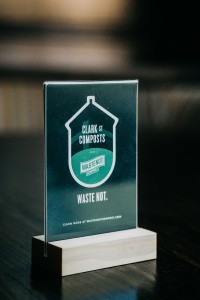
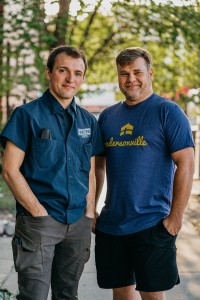
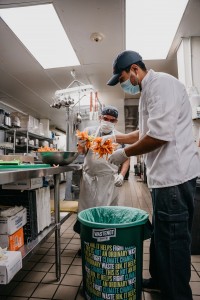
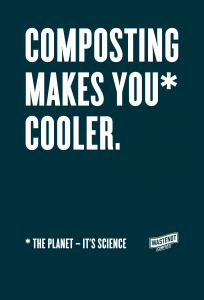
Through Clark Street Composts, WasteNot Compost is educating and encouraging owners and managers to include composting in all aspects of their business. WasteNot provides bins and carts for members to divert the widest range of compostable items and are encouraged to dispose of not only fruit and vegetables, but other organic matter typically not considered compostable in backyard operations. These items include both cooked and raw food, meat, dairy products, hair, pet fur, yard waste, compostable products from packaging companies, and much more. To encourage business owners and their employees to participate in composting, WasteNot Compost provides an online membership experience and support for all their needs and questions. Additionally, as the public looks out for environmentally friendly businesses to support, WasteNot is providing all its partners with material to help market their participation with the Clark Street Composts program.
COMPOSTING FAQS
CAN COMPOST:
Vegetables, fruits, grains, nuts, seeds, yard waste, meat, bones, dairy products, coffee grounds and filters, egg shells, compostable plastics, tea bags, tissues, paper towels, newspaper. Check WasteNot Compost website for the complete list!
CANNOT COMPOST:
Excessive cooking oil, glossy paper products, staples from tea-bags, pet waste, twisty ties, rubber bands. Check WasteNot Compost website for the complete list!
WHERE DO YOU LEAVE THE BUCKET?
You are strongly encouraged to leave your bucket in the FRONT of your building for pickup/drop off. Buckets are vulnerable in the back of buildings & are more likely to get stolen. Examples: “Next to front door” or “Hidden behind front bush.” If you live in a high rise, a mail room or front door person can help!
WHAT HAPPENS IF MY BIN IS STOLEN?
If your bin is stolen, you’ll need to notify The WasteNot immediately. If you inform them by 12PM the day after your bucket was delivered, they will bring you a replacement bucket free of charge. If you don’t notify them in that time period, you can still schedule another bucket to be delivered for a fee.
Aggregating the waste, WasteNot provides measurements and data to their members, detailing the amount of greenhouse gas emissions they are offsetting, not only by diverting food waste, but by selecting a waste partner that operates a zero-emissions fleet of electric vehicles. The benefits of composting are not limited to only providing an environmental solution: keeping food-waste out of back-alley bins means less resources for Chicago’s rodent population and no more smelly trash cans in the home. As a subscription service for both residents and businesses, WasteNot is also determined that Chicagoans see a return for their composting efforts. Twice a year, in the spring and fall, WasteNot returns its compost back to its members in the form of nutrient-enriched soil. Where once compost was used to fertilize agricultural fields, WasteNot Compost’s soil is used to return nutrients to Chicago’s soil strained by over 200 years of industrial and commercial development.
Chicago businesses and residents interested in composting from home can visit wastenotcompost.com to learn more and sign up to experience the “composting-made-easy” service.
To find out more, please contact:
hq@wastenotcompost.com or visit wastenotcompost.com
Follow WasteNot on social media:
Instagram: @wastenotcompost
Facebook: WastenotChicago
